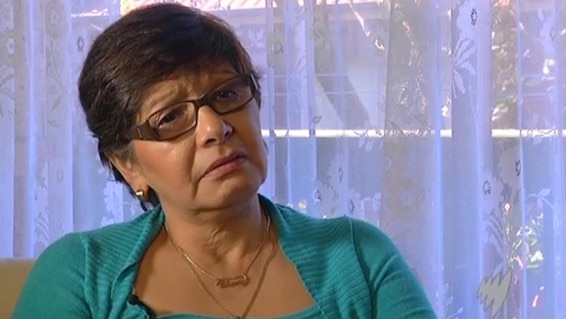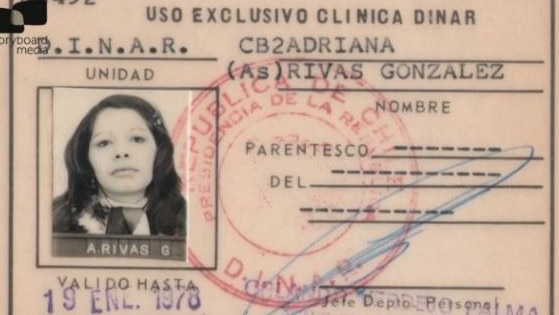Accused Chile torturer Adriana Rivas appeals to full Federal Court
Bondi nanny Adriana Rivas is accused of harrowing torture crimes in her homeland of Chile — now she could be facing her final chance of escaping extradition.
Police & Courts
Don't miss out on the headlines from Police & Courts. Followed categories will be added to My News.
A Bondi nanny accused of crimes against humanity in a hidden Chilean gulag could be at a “dead end” a judge has warned as she battles to stay in Australia.
Adriana Rivas lived as a grandmotherly nanny to the wealthy in Sydney’s east for years until police knocked on her public housing home in early 2019.
The government of Chile said Rivas was part of a secret police force, known as DINA, who abducted, tortured and disappeared Chileans in the 1970s on behalf of Augusto Pinochet’s brutal regime.
Rivas, Chile claimed, needed to return home to face trial over the torture and death of seven Chileans who were brutalised with sarin gas, electrified beds and welding torches.
A magistrate ruled Rivas was eligible for extradition and she has fought the decision at every turn since.
Earlier this year the Federal Court agreed Rivas needed to be sent back to Chile.

Rivas’ barrister, Frank Santisi, appealed to the full bench of the Federal Court on Thursday where he said Chile was trying to “retrospectively” prosecute against its own amnesty laws.
Mr Santisi said Australia should exercise its own sovereignty by not sending Rivas back to Chile to face a flawed prosecution.
But Justice Debra Mortimer said it risked throwing well-established extradition laws “into chaos”.
Justice Robert Bromwich said Rivas would need to point to a point in those laws that specifically allowed the court to stop the extradition because of the amnesty laws.
“If you can‘t do that we can’t do it. It’s a dead end,” the judge said.
Mr Santisi said he could not identify such a paragraph.
But, the barrister said, the bound files sent to Australian authorities from Chile all failed to spell out exactly what Rivas allegedly did in the torture facility.
It didn’t spell out what she knew about it, either, Mr Santisi said.
The Daily Telegraph revealed last year the full scope of the brutal allegations contained in the Chilean dossiers.
Those files said Rivas was allegedly known as “La Chami” during her time in DINA’s secretive “Lautaro brigade”.
“Amongst the meanest instruments used by that systematic policy is the creation of specialised repression groups that implemented underground detention centres which later became places where the most hideous acts of horror, torture and genocide took place,” the dossier reads.

Rivas is named in the documents as a member of the brigade who joined in 1974 after taking “a course in intelligence”.
Chile alleges Rivas was just one agent who would snatch and detain Pinochet’s political enemies – unionists and Marxists – as they walked the streets of Santiago.
The detainees were held in the gym and cafeteria, interrogated and tortured in “dungeons” — the dressing rooms next to the gym — with electrified metal bunk beds, the dossiers read.
Sarin gas experiments, under the direction of doctors, were undertaken on the prisoners.
Once the interrogations were over the prisoners were injected with unknown substances and suffocated with plastic bags.
Their bodies were anonymised by burning off their fingers and faces before they were thrown into the ocean from helicopters, Chile alleges.
Mr Santisi, on Thursday, said there wasn’t sufficient evidence to show Rivas’ actual role in these horrific allegations.
But Justice Bromwich said literally every case in his decades of law involved “retrospective prosecution”.
Further, the judge said, it was not the court’s role to assess the strength of the Chilean prosecution.
The court does not need to find, for example, that Chile has a sound case against Rivas.
The court can only look at legal issues such as whether the magistrate and judge, who both signed off on Rivas’ extradition, made mistakes in their reasoning.
The Chilean legal team assured the court that the extradition was legally sound.
They told the court she had fled prosecution in Chile which had been on foot since 2007 and denied the case was politically motivated.




